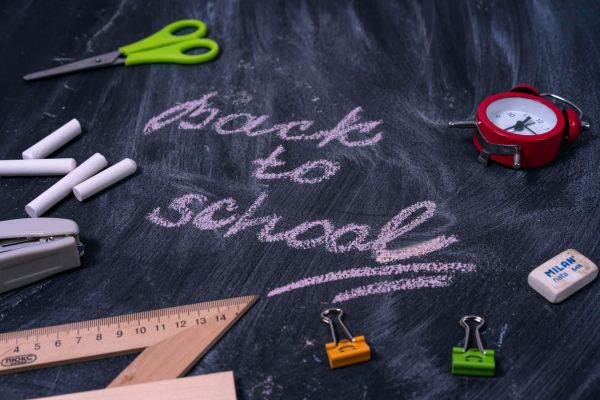
Prep for the New School Year
| IEP, IEP Meetings
Now that we’re nearing, or perhaps already started, the 2022-2023 school year, you might breathe in the thought with a heavy sigh. That sigh is either heavy with excitement for the year of possibilities or heavy with trepidation, worry, or worse, dread. So, how can we prep for the new school year?
By Crystal DeVoss Mahany
In either case, my suggestions for you are the same:
- Get prepared
- Parent Concern Letter
- Request an IEP meeting
- Get your documents in order
- Summer therapy progress reports
- Private evaluations
- Share the doings (or non-doings!) your child has engaged in during the summer
- Write down areas of marked difference or improvement
- Is your child talking more? Reading more?
- How have these improvements affected their everyday life?
Get Prepared
If you’re like me, you haven’t touched your child’s IEP binder or last year’s stack of classwork all summer. Good. I’m glad you didn’t! However, let’s crack it open and read the IEP again to refresh our memories. While you do that, ask yourself these questions:
- Are the IEP goals and accommodations still appropriate?
- Do the accommodations cover all my child’s needs?
- Does the IEP have at least one goal for every area of need?
Jot down your answers because you’ll need them for the next steps.

Prep for the New School Year Step One:
Start preparing your Parent Concern Letter to your child’s IEP team. Why, you ask? Because the concerns you express in an IEP meeting don’t always make their way into the Parent Concerns section of the IEP. Your concerns for second grade may not apply to third or fourth grade. We care a whole lot more about our kid’s experience in school that goes well beyond academics. For example, social skills and self-advocacy skills goals can, and arguably should be, included depending on the needs of your student. We can let the school team know we’d like to increase their time in the general education classroom. Non-academic social interactions with peers can provide a variety of opportunities to learn and grow. When my son’s general ed teacher included him in the science demonstrations, he blossomed socially. Sure, he wasn’t up to speed on the lesson, but he and his classmates had a wonderful experience together, which made a world of difference!
What Goes in a Parent Concern Letter
- Areas of need – both the ones the school identified and agrees with AND
- Other areas of need the school have not identified that you want to include (and possibly ask an area that you are requesting an evaluation for)
- Strategies that help your child be successful
- Strategies that do not work or do not help your child be successful
- Behavior concerns
- Food or medical concerns
- Concerns for the current grade, preparing for upcoming grades, and into high school
- Any other things you’d like to ask or request the school keep an eye on
- Long-term goals (high school, college, employment, independent living, etc.)
One important point to include is what you want long-term for your student. Every aspect of their education is meant to prepare them for life beyond the four walls of school – talk about it! Do you want your child to receive a standard diploma? Does your child express interest in a particular field (mine says he wants to build rocket ships) or can a particular interest lead to employment (like working with animals)? Put all this info in writing and request the letter be pasted into the IEP *word for word*.
Prep for the New School Year STEP 2:
Request an IEP meeting within the first few weeks of the school year. Even if the IEP is fairly recent, each grade presents its own set of challenges, demands and expectations. Some districts hold “end of year” IEP meetings in a way to “prepare” for the following school year. This should not diminish the need to hold an IEP at the beginning of each school year, especially because your student may not have assigned teachers, paraprofessionals and service providers until the beginning of the school year. Therefore, request the meeting, share your Parent Concern Letter and express your concerns and goals for the school year and beyond.
Remember, above all, your input matters. Your insight is invaluable.
Get Your Documents in Order
Track Summer Progress
If your child attended any therapies over the summer, gather the session progress notes and highlight what they worked on, any progress made and if they will continue therapies after the school year begins. If a written summary from a therapist would help describe the work and progress your child made, request it and provide a copy to the school (and keep a copy for your records).
Collect Work Samples
Next, sift through your child’s classwork from last year and pick out a few wonderful signs of progress and pieces that show either a lack of progress or significant need–writing, drawing, etc.
For example, my son’s handwriting looked the same between first and third grade, so I found samples from all three grades and showed them to his fourth-grade IEP team who insisted he made progress. Without that visual, his IEP team wouldn’t have the context to truly understand why I wanted to emphasize improving his writing skills and how they can target the skill.
Review & Summarize Last Year’s IEP Data
Lastly, gather the IEP progress reports, grades and parent-teacher communications, and review important emails. Familiarize yourself again and take inventory of the areas of need along with their strengths and weaknesses. Has anything changed? Can you think of anything the IEP team should know? Take note of the truly positive aspects of last year and what helped your child have successful days. Yes, academic progress is the whole point, but their experience and other non-academic successes (like social skills) are really, really important, too.
Since military kids move frequently, the likelihood that their educational team is aware of growth between grades diminishes significantly each year and with each PCS. Part of our responsibility as parents is to help the IEP team to understand our children, which only positively contributes to their education. All that to say, get your documents in order and prepare to share your insight with the IEP team! Here’s a fantastic form created by one of PiP’s fantastic volunteers called “All About Me” letter.
Share the Doings (and non-doings!) of the Summer
What did y’all do over the summer? Did you visit the YMCA, play any sports, travel, swim at the community pool, build Legos, read new books or go camping? How’d it go? Did your student show you anything new or make gains in a particular area?
My 10-year-old autistic son, with severe speech delays, struggles with reading. His previous teachers had a hard time documenting what he CAN do (e.g., reading sight words, identifying phonemes, etc.). Our family uses a grocery list app for shopping. This summer, I tried something new – I handed him my phone with the app open, and with each item we picked up, it was his job to find the item on the list and select it to “cross it off” the list. A line went through the word, and it moved to the bottom of the list. He found this quite satisfying! Sometimes he’d point to the word and look at me to make sure he picked the right one.
Why is this an important summer activity to share with his IEP team for fifth grade? Because this seemingly mundane task created a practical way for him to work on phonemic awareness, receptive language and, arguably most importantly, his confidence. Sometimes the best learning occurs with practical application and real-life experience. What else does it tell me? He’s eager to learn, wants to try and is pleased when he gets that win with each successfully identified word–followed by my obnoxiously exuberant praise.
Aside from multitasking phonemic awareness and helping me with our grocery list, we didn’t do much, a fact I’ll happily share with the IEP team as well. Sometimes it is okay to take a breath, relax and take our time to get ready for the next school year. Share the therapy progress, the fun, the nothingness and anything else you think is helpful.
Preparing Begets Preparing
We PCSed at the end of April so my two boys (both with IEPs) had less than a month with their new teachers before the school year closed. I was worried. I worried about our new school, the kids, the administration’s approach to educating children with disabilities, the IEP team’s attitude and our overall experience as a military family. What the school team brings to the table matters just as much as my experience and attitude.
Military kids have a vastly different experience with the education system than most children. We, as their parents, bear the responsibility to ensure we continuously prepare for the next school year, as well as the next PCS. Staying on top of these three things all year round will help you and your child prep for the new school year this year and in the years to come.
Here’s to a fantastic and successful new school year!





Leave a Reply